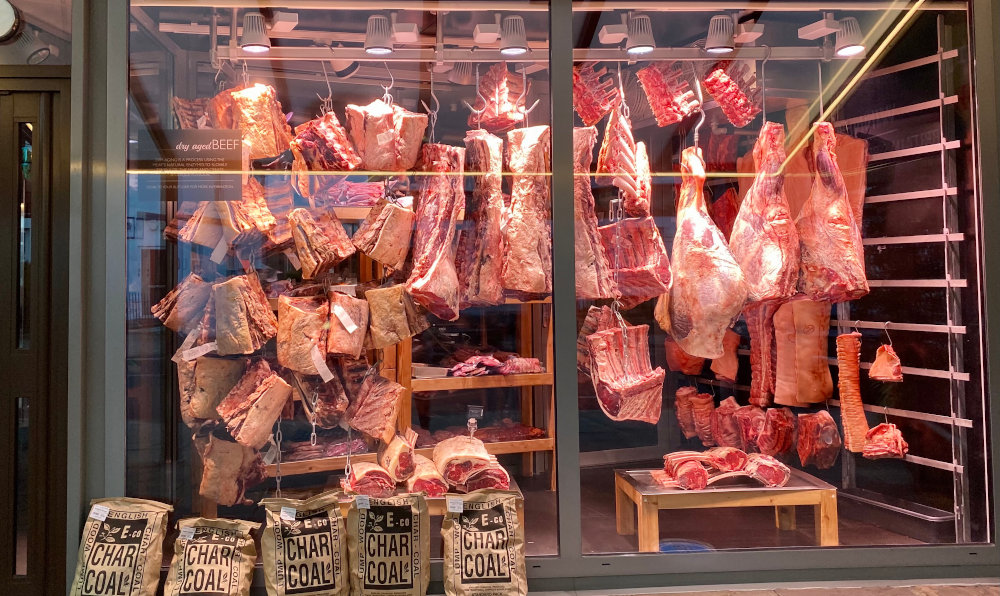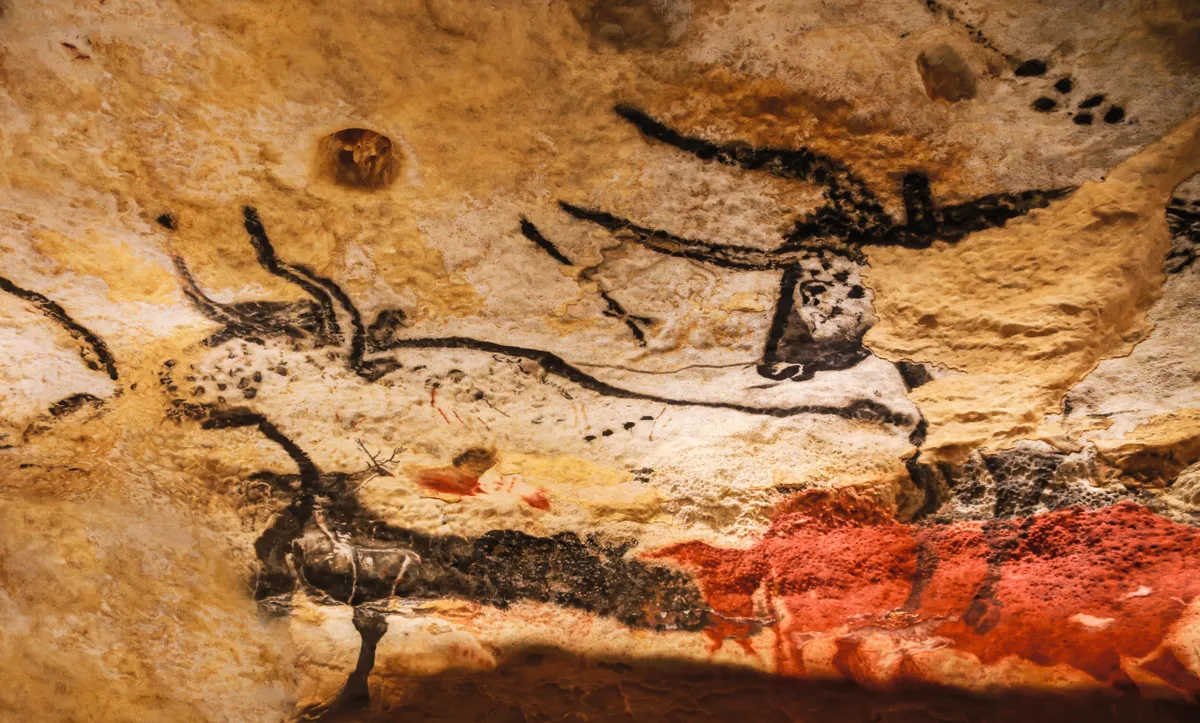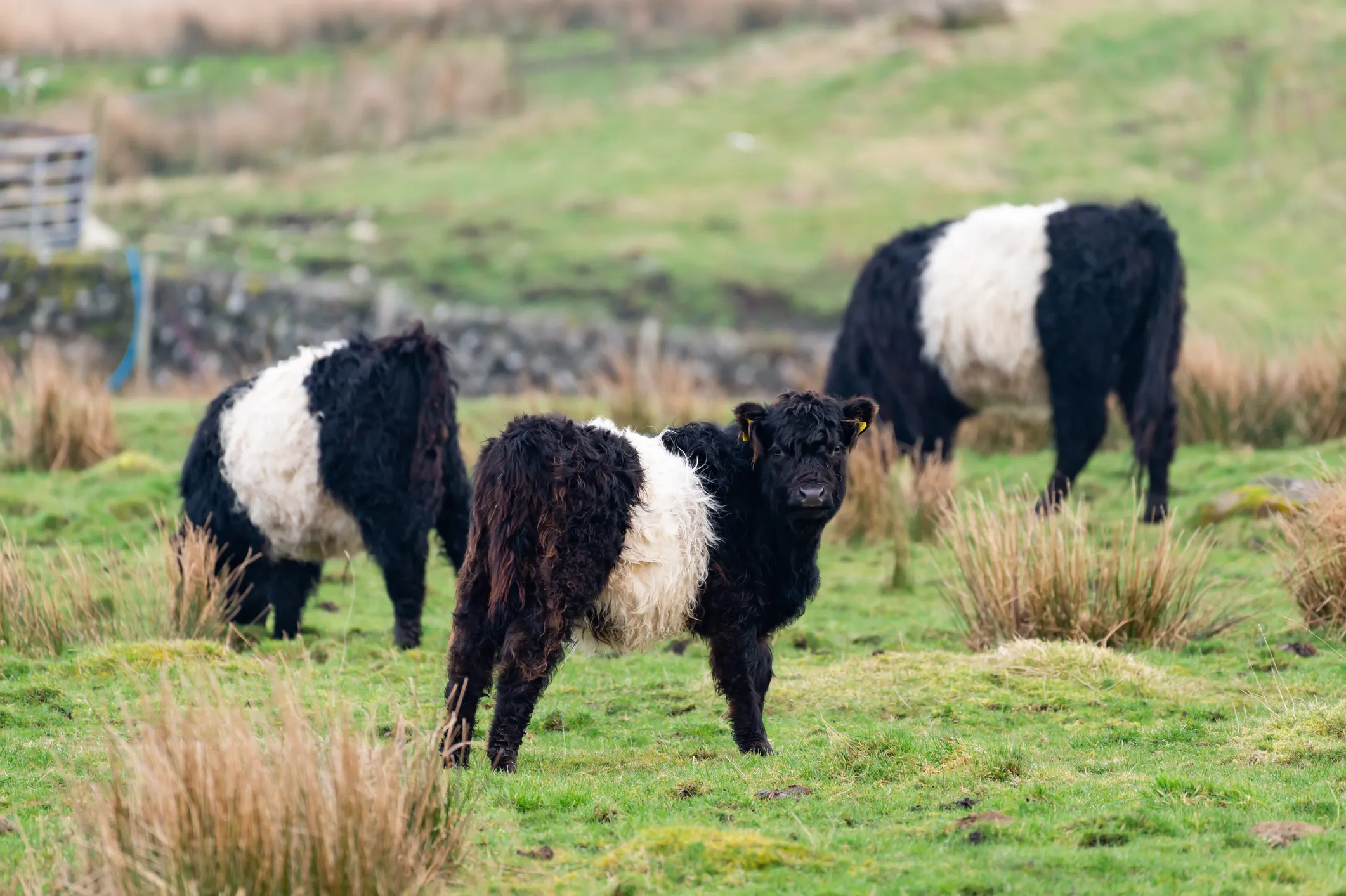Pro
by Fabian Webb
Despite its exponential success as both a diet and a lifestyle, strong resistance to the ideals and realities of veganism and vegetarianism continues throughout all walks of life. Having been vegan for over four years, I have come to take an openly critical position to our methods and understandings of food production, farming, and nutrition, whilst encountering many of the counterarguments and reactions to my decision to ditch animal products. Intriguingly, many of these have been close to home, with a heritage of butchery on one side of the family and pastoral farming on the other; I am sure both my grandfathers are turning in their grave. However, I would like to think this ironic family history has given me a balanced approach in my perspective. With this, In the next few paragraphs, I will set out a basic triple-pronged argument for why adopting veganism is not a moralistic, ostentatious show of high-horse riding, but a reasonable, respectable, and responsible personal decision, not only capable of saving the lives of billions of beings, but your own health, and the existence of humanity as it stands today.

Sheep at Hayden Wolly Farm.
Perhaps the most obvious consequence of a vegan diet is freeing certain sentient beings from the slaughterhouse and unnecessary suffering. To give a sense of scale, the World Economic Forum estimates that the global community slaughters 50 billion chicken a year for food production, a figure that does not include the process of grounding male chicks or the discarding of unproductive hens. Importantly, this gargantuan loss of life is entirely unnecessary; It is clear that we do not need meat, or any animal products to sustain ourselves healthily- more on this later. I do not intend to preach to you about the sanctity of life, after all, I’ve killed a few mosquitoes having been eaten alive too many times, and flies when they’ve lain eggs in my food (although it is never something I enjoy or take pride in…). Rather, I simply ask, how can you justify taking the life of such obviously conscious, feeling beings? Perhaps it’s the enjoyment, the flavour and consistency, or the practicality and the thought of an awkward family dinner. I do not think any of these shallow responses have any substance when taking the life of an animal. Much like when you see a dog in Vietnam on a butcher’s table, you may understand why I think this is the case. Given the chance, these farm animals are similar to the species we cherish in all the ways that matter. However, although my grandfather loved his animals, in order to send them off for slaughter, he made sure to never name them, giving him the emotional distance from the fact that these were beings and not just cuts of meat. Yet, In the abattoir, the workers there will face much higher rates of psychological and stress disorders like PTSD, with the profession also being linked to increased rates of domestic abuse and substance misuse. Although E. Kant said we have no obligation to animals, even he recognised the effect the killing or mistreatment of an animal had on one’s psyche and their actions towards other men. This, of course, does not even begin to factor in the torturous experience of factory farming which makes up 70% of all the farms in the UK and 99% in the US. How do you justify it?
Furthermore, whilst sparing the lives and suffering of billions of animals, one can drastically reduce their environmental impact. As hinted at above, in this day and age, in order to feed our gory appetites, the number of farm animals is three times higher than the human population at any one time. To sustain such a large number of animals is obviously a devastatingly resource intense and destructive process. The first issue is producing the space to hold livestock, secondly, the feed and water to rear them. With growing global demand for meat and animal products, large swathes of land are needed to keep them. One obvious example of this being that the leading cause of deforestation in the Amazon rainforest is not timber production, but cattle farming, with multiple football fields worth of forest often being seared to the ground, not cut, further adding to carbon emissions. When it comes to actually rearing livestock, the production of animal products takes more water and carbon emission than their leafy counterparts. Not only do you have to provide animals with water, but for the majority of pastoral farming, crops are needed for feed, with over a third of the world’s crop calories going to feed animals. This process is hugely inefficient, as biologists will know. For beef some studies such as Alexander et al. (2016) calculate that 25 kg of dry matter is needed to produce 1 kg of edible weight output. Chicken is more efficient, with a measly 3.3 kg dry matter needed, however, we still face a highly inefficient process. Critically, the intensive arable farming needed to hit demand has devastating impacts on the soil and environment, especially when taking into account the use of fertilisers. You may suggest, then, that if everyone went vegan, we would still be facing this issue, yet, due to our current allocation of grains and cereals, the volume of output needed would be drastically reduced. Some may propose that this is not how we do it in Blighty. However, the myth of grass-fed beef is not the solution either, with minimal carbon dioxide sequestration taking place, meaning there are still net positive emissions. As we all know ruminant livestock is a consistent source of methane and other greenhouse gases… With animal agriculture being the leading cause of species extinction, water consumption and ocean dead zones, and one of, if not the biggest contributor to carbon emissions, alongside over pollutants, it is undeniable that our lust for animal products is fuelling the destruction of our environment, both local and global.

Factory Farmed pigs at an undisclosed location.
Thinking about the personal benefits too (aside from not being underwater due to rising sea levels), a vegan diet has been shown across many variables to be a more beneficial diet for all ages and requirements. Importantly, there is nothing that meat and other animal products provide that cannot be sourced from plants. Some may point to the vital B vitamin, B12, an essential nutrient produced by bacteria, and not animals themselves. These bacteria will be present in the soil and water, however, since we clean our produce and filter our H20, we only get trace amounts, or no B12 at all from these sources. Intriguingly, although we can get this micronutrient from meat, livestock and poultry are often supplemented with B12, to ensure this. Hence, the notion that we ‘need meat’ is simply wrong. Even individuals with nut allergies, anaemia and other chronic deficiencies have shown that it is a viable and comfortable option to take. Aside from supplementing B12, which is something that I would recommend to any diet type, vegans are at a reduced risk of heart disease, diabetes, cancer, dementia, strokes and erectile dysfunction. Worryingly, red meat has been deemed a type 2-a carcinogen with processed meats being classified as type-1 carcinogens by the WHO, and there is growing evidence of fish containing high levels of mercury and microplastics. This is not to say that a vegan diet is always good! To those vegans who exist on an assortment of oreos and mash potato, no, your diet is not healthy simply because it is vegan. However, there is a reason that some of the greatest athletes in the world are adopting vegan diets; Lewis Hamilton, David Haye, both Serena and Venus Williams, and Novak Djokovic have all made the switch. If anyone has be following Arnie Schwarzenegger, he too has dropped meat, claiming he is mostly vegan, aside from the occasional egg…
There are numerous further lines of argument to go down, including the humanitarian impacts of animal product consumption such as modern slavery in prawn production or antibiotic resistance. Of course, there is also plenty more detail. However, I think these three basic outlines are convincing enough. I do not expect this short strip to be life changing by any means, or for people to be going vegan in an instant; I like to be realistic. I think it is important to note that, before I was vegan, I ate meat for 16 years of my life, then went through pescetarianism and vegetarianism. For those who are considering it, it does, and should not be, all in one go. Nonetheless, I hope this encourages at least someone to take the time to think about and not outrightly deny veganism, or at least vegetarianism. As I say to anyone in such a discussion: go read about it yourself.
Counter
by Harry Humphreys
Personally, I see the greatest threat to the environment is the increasing detachment between people and the countryside. Increasingly, we live and work in cities and fail to appreciate nature. I worry that many of my peers would struggle to name 3 different species of cow, tree, or sheep. Yet somehow many of these people seem to maintain that their Vegan lifestyle is the saviour to the environment.
Now to give you some background on myself, I have grown up on a small farm in Somerset within a tight nit community of farming families. From the age of 3, I was out working in the fields and looking after our livestock. Like Dick Wittington, however, I have recently found myself sucked into the tumultuous metropolis of London to seek my fortune. It is here that I have frequently come across the Lesser Spotted liberal elite of SW London who preaches the imminent apocalypse following years of negligence under the patriarchal society. Just never mind that Daddy recently bought them a flat in Battersea. When I mention that I grew up on a farm, an icy chill descends upon the scene…
‘But how could you murder innocent animals after forcing them to live a life of imprisonment’ They exclaim. Now look, obviously in certain cases you will find some farms that treat their livestock poorly and it is this minority that rightfully the focus of animal rights activists. To assume, however, that this is the case for all farms in the UK is a grave mistake. It is always within the Farmer’s interest to ensure that their livestock are happy. Unhappy livestock do not thrive and are typically underweight and more prone to disease. It is firmly within the Farmer’s interest therefore to ensure that their livestock are treated well. Moreover, in the UK especially, there are stringent standards the farmers to meet to ensure appropriate animal welfare. For example, any farm signed up for the Red Tractor status must demonstrate ‘safe, comfortable and hygienic housing’ is available for all cattle and sheep. This means that the housing must be well ventilated, clean and allow normal animal behaviour. Moreover, ‘the animals must receive a full and healthy diet’ and the ‘health and welfare of the cattle and sheep must be proactively managed’. I have here a few of a long list of rules from Red Tractor. All the farms that sign up for Red Tractor are subject to random inspection every year or 18 months dependant on the farm. Therefore, if you’re worried about animal welfare, you can usually guarantee the animals have been looked after if you buy red tractor meat. Even better is to buy direct from the butchers. Butchers typically have direct contact with the farmers and occasionally visit the farms themselves to inspect the animals. I appreciate that butchers are typically more expensive, but I would be inclined to think that in the UK, we do eat rather a lot of meat when we might not need to. It is, therefore, perhaps not a bad idea to cut down on cheap meats from Europe and instead save the money for higher quality British meat in smaller quantities.

Billy's Butchers South West London.
‘What about the mass slaughterhouses?’. There is no tip toeing about the fact that ultimately, you are raising these animals for slaughter. In the UK the most popular method of slaughter is with a penetrating captive bolt gun. This fires a metal rod into the brain of the animal at high-speed causing it to lose consciousness immediately. The animal is then hoisted above the ground by its hind leg and the throat is cut. Other methods of slaughter involve a stunning shock or poisoning by gas (typically reserved for Pigs and Poultry). In every case, the aim is to ensure that the animal feels as little pain as possible. Currently, there is no perfect solution. The only better way to do it would be to allow the animal to be slaughtered on the farm from which it was reared. Unfortunately, this practice is limited to a small-scale farms that are selling locally. Although the slaughter of animals may all sound brutal and barbaric, I would like to hear the alternative. Do we just introduce re-wilding at let the furry animals curl up and die naturally? Of course that wouldn’t happen at all. We’ve all seen the Attenborough documentaries. As soon as an animal drops its peak physical condition it is slowly torn apart by a pack of Wolves. If we rewilded the UK, Wolves, Lynx and Bears would be the natural predator. I think I would personally prefer my cow Baldrick to be shot by bolt gun rather than slowly ripped apart.
‘Don’t you know that livestock are responsible for climate change?’. Now I struggle with this one, especially in the case of UK farming. Do cows farting really produce more methane than the millions of aurochs that used to roam Europe? For those of you unfamiliar with Aurochs, they were essentially the ancestors of our domesticated British cows before the agricultural revolution. They were twice the size of modern cattle and used to roam Europe in large herds. These gigantic beasts were also responsible for regulating our woodland habitats by knocking down trees. Yes, you read that correctly, the destruction of smaller ‘weedy’ and unhealthy trees plays a vital role in ensuring the greatest biodiversity. This is something farmers are tyring to reproduce today by increasingly moving toward woodland grazing. In the US, Bison used to number in the billions. Due to mass hunting, however, their number has dwindled to 20 thousand. The general point I am trying to make, however, is that I don’t understand how farming has greatly increased the population of large farty mammals. Consequently, if the population has not increased, then what is the solution our Vegan friend proposing? That we let them simply let these fantastic and diverse breeds die out? That doesn’t sound very compassionate.

Cave painting of Auroch from Lascaux Cave France.
‘It’s the deforestation and water consumption that’s the real problem’. Deforestation you say? If you’re eating a plant-based diet, all those crops have been farmed and often shipped in from abroad. According to Nutriciously, quinoa is one of the top staple foods for any Vegan diet. Which countries are the largest producers? Peru and Boliva where we are losing 200,000 acres of rainforest a day to new farms. Now cattle farming is not blameless here, but agricultural farming is far from innocent. Instead, let’s say for the sake of argument, that you are a friendly vegan and aware of the impact of buying from abroad and only buy local. Again, perhaps you think this is causing no harm to the environment or animals. However, ploughing a field is one of the most destructive practices we can perform. Not only do forests need to be ripped up but fragile ground nesting birds such as the Curlew and Dartford Warbler are forced off their traditional pastures. Moreover, thousands of smaller less ‘noticeable’ animals such as slow worms, field voles and moles are killed as the plough goes through. Not to mention all the vital insects that keep the ecosystem going.
‘What about water consumption?’ Again, if you are buying from the UK, I struggle to understand how this is an immediate problem given our average rainfall 1.4kmm/year and again, Vegan foods are far from innocent. Although Almond milk which is commonly criticised for its water consumption uses less water than it takes to satisfy a cow, at the end of the process you are left with…. a bottle of almond milk. With a cow, however, it has multiple uses. Not only do you get roughly 4 litres of milk/day, but when it comes to be time for the animal to be slaughtered, the meat can feed nearly one thousand people for one day. We also get a host of by-products such as manure which can be used to grow crops, leather, glue, gelatine, and bone meal.
The overarching with Veganism is usually a lack of understanding or awareness when it comes to farming. As people increasingly move to living in crowed cities we are forgetting our connections to the countryside. I worry that not many of my immediate peers would be able to identify five different types of trees or songbird. Fundamentally, if you still want to eat meat but you worry about the environment/animal welfare, I will challenge you to go and have a chat with your local butcher. Ask them where the meat comes from. Perhaps, even go and have a walk on a public footpath near the farm. It is important for us to get out there and get closer to nature rather than pursue ignorance.
